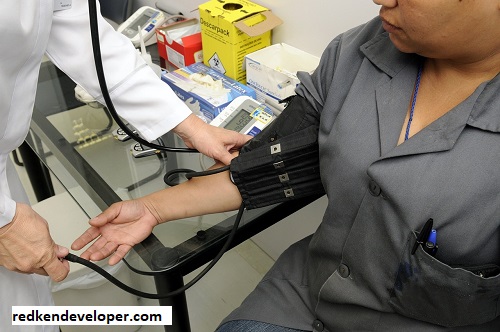Clinical supervision: An in-depth exploration
Clinical Supervision:
While clinical supervision is an important requirement for all fields of practice, in health care as well as counseling, social work, and psychology, it provides a framework for improvements in the professional’s practice, development in skills, and assurance of quality services.

Keeping all this in mind, this article will discuss principles, models, processes, and the importance of clinical supervision along with common FAQs to facilitate a better understanding of this very critical practice.
What Is Clinical Supervision?
Clinical Supervision:
Clinical supervision is an official process, wherein a trained and experienced supervisor oversees the work of practitioners. Over this, he or she provides guidance, support, and feedback to ensure that a practitioner is giving better, ethical, and competent services. Mainly the aims of clinical supervision include promoting professional development, enhancing clinical skills, and ensuring the safety of the clients.
Why Clinical Supervision Is Important:
Clinical Supervision:
- Quality Assurance: Clinical supervision affords the quality of services by the practitioners through frequent oversight into good practice which is directly linked to the security and effectiveness of treatment efforts for clients.
- Professional Development: The process creates a learning space with an opportunity for continuous skill redefinition of the practitioners; they also have a chance to get reflection from more experienced supervisors in real and practical practice contexts.
- Emotional Support: It can provide emotional support to the practitioner in dealing with the levels of stress, preventing burnout, and developing resilience and coping in sometimes challenging workplace environments.
- Ethical Practice: Clinical supervision is embraced through respect and advancement of ethical principles due to the promotion of the framework of a discussion on ethical dilemmas and decision-making processes while enhancing the ethical reasoning and judgment of practitioners.
Key Principles of Clinical Supervision:
Clinical Supervision:
1. Reflective Practice:
Reflective practice allows the practitioners to work on their critical analysis of work, improve areas that call for attention, and come up with other alternatives. It helps build self-awareness and leads to better ways of learning.
2. Mutually Constructive Relationship:
Clinical supervision is founded on a relationship that is mutuality-surfacing among the supervisor and the supervisee. It ensures mutual trust and respect which calls for openness and frank communication between the two. It usually offers honest feedback and constructive dialogue.
3. Goal-Attainment Focus:
Particular objectives for supervision must be aligned with the professional development needs of the supervisee. Explicit objectives serve as ways to track progress and ensure that supervision is relevant and purposeful.
4. Feedback and Evaluation:
Constructive feedback is necessary for growth. Assessments by supervisors regarding the performance of the supervisee enable strengths and areas for development, improvement of skills, etc.
Models of Clinical Supervision:
Clinical Supervision:
1. Psychodynamic Mode:
This model focuses on the affective and relational aspects of the supervisory experience. This model engages the dynamics of the supervisor and supervisee and looks at how personal experience and unconscious processes inform practice.
2. Cognitive-Behavioral Model:
This model applies cognitive-behavioral principles to supervision, focusing on the identification and modification of maladaptive thoughts and behaviors in the supervisee. It encourages structured feedback and skills training.
3. Developmental Model:
According to the developmental model, practitioners are always developing through various stages. Supervision is based upon the supervisee’s level of development and assists in supporting and challenging him or her, depending on their experience and competencies.
4. Systemic Model:
The systemic model takes into consideration the larger environment in which the practitioner works and incorporates organizational culture, policies, and systemic problems. Aware of the connections between the individual practitioner and his environment.
The Clinical Supervision Process:
Clinical Supervision:

1. Supervisory Relationship:
Developing a robust supervisory relationship is the starting point. It begins with discussing the expectations and establishing and developing the boundaries between the supervisor and supervisee.
2. Goal Setting:
Sets of specific goals for supervision are also of great importance. Goals must be SMART, that is, Specific, Measurable, Achievable, Relevant, and Time-bound and in keeping with the needs and aspirations of the supervisee.
3. Supportive Feedback:
Ongoing support and supportive feedback also form important parts of the process of supervision.
Process the supervisee holds regular meetings where cases are presented, challenges are discussed, and feedback is given. It creates an atmosphere of continuous learning and reflection.
4. Evaluation and Adjustment:
The supervision process needs to be evaluated, along with the constant supervision of the progress by the supervisee. It must assess whether the goals are being achieved and whether the supervision plan needs to be modified.
5. Closure and Transition:
At the end of a supervisory relationship, it is worthwhile to reflect on the journey, celebrate accomplishments, and discuss future professional development paths. This will serve to cement the skills and insights learned during the process.
Challenges in Clinical Supervision:
Clinical Supervision:
1. Resistance to Feedback:
For some supervisees, offering feedback may be resisted due to fear of judgment or criticism. Many resist because they’ve been praised too little or aren’t used to constructive criticism. A trusting relationship and growth mindset go a long way in reducing such resistance.
2. Power Dynamics:
This one is pretty uncomfortable in itself due to the inherent power imbalance in the supervisor-supervisee relationship. Both of them have to work very hard to be able to keep dialogue open and collaborative.
3. Finding the support-accountability balance:
Balancing support with demanding accountability is always tricky. The supervisee needs supervisors to strive to find this balance so that they grow while maintaining their work ethically sound.
4. Lack of Time:
Supervision is extremely time-consuming and makes it difficult to execute other chores due to supervision. Hence, effective time management and prioritization will be necessary for supervision to be successful.
Future Considerations for Clinical Supervision:
Clinical Supervision:
1. Tele-supervision:
Telehealth has extended into clinical supervision. With the use of electronic devices, sessions can take place remotely. This may make it possible to expand access, but the methods of adaptation necessary to ensure all relationships are adequately formed will still apply.
2. Use of Technology:
Technology can also facilitate the supervisory process by using digital documentation, case presentation, and feedback tools. However, the supervisor needs to keep cognizant of the ethical implications of technology in practice.
3. Culturally Competent Focus:
Supervisors and other practitioners are increasingly working with increasingly diverse demographics of clients and themselves. Thus, it would be apt to focus the supervisory process on cultural competence. This would keep vigilance open to any form of cultural consideration in the care of clients and supervision.
4. Interdisciplinary Supervision:
There is growing recognition of the value of inter-professional supervision, whereby professionals from all professions come together and share their knowledge.
This deepens the supervisory experience with an emphasis on holistic care.
Frequently Asked Questions About Clinical Supervision:
Clinical Supervision:
1. What is clinical supervision?
Clinical supervision services are rendered to boost practitioner skills, ensure quality assurance, promote professional development, and ensure that the care provided to the client is ethical and efficient.
2. Who could serve as a clinical supervisor?
A clinical supervisor is typically a practitioner who has had extended training in supervision; holds appropriate qualifications and experience in the field; and is usually already an experienced member of the clinical profession being supervised.
3. How often should supervision be received?
The frequency of supervision depends on the establishment and the needs of the supervisee. Typical arrangements are weekly, fortnightly, or monthly sessions.
4. What is the difference between clinical supervision and mentorship?
There is a structured, professionalized process termed clinical supervision, aimed at ensuring quality and development. On the other hand, mentorship would appear rather fluid and personal/professional development through guidance and support.
5. How do I prepare for a clinical session?
Reflect on your recent cases and points where you are encountering problems in the treatment process. You form specific questions or topic discussions when you meet your supervisor.
6. What can I do if I am uncomfortable with my supervisor?
If you feel uncomfortable with your supervisor, you need to open up as much as possible about what is happening and what’s bothering you. If the discomfort does not fade away, try talking to another supervisor or even a buddy in the office.
7. Can online supervision be done?
It has become very trendy, even today, and has become indispensable with the COVID-19 pandemic. Flexibility and accessibility are its advantages, but attention should be given to keep communication effective.
8. How can I ensure effective feedback in supervision?
Be open to constructive criticism and request explanation when necessary, and discussion on performance and areas of development.
9. What are some of the common challenges of clinical supervision?
Common challenges include resistance to feedback, power dynamics, balancing support and accountability, and time constraints.
10. What is the future of clinical supervision?
The future of clinical supervision will be more technologically dependent with a special focus on cultural competence, interdisciplinary collaboration, and attitudes toward adapting to new practice environments.
Conclusion:
Clinical Supervision:
supervision is a core process that underpins the quality of care provided by healthcare and mental health professionals. supervision has a vital role in developing professional competencies, enhancing skills, and upholding ethical practices that may improve client outcomes.

In this changing line of work where new technology is adopted, and challenges are met by a step forward towards cultural competence, clinical supervision will define the future. Through this continuous process of reflection and growth, the practitioners will better their ability to service their clients and make a better difference for others in their professions.